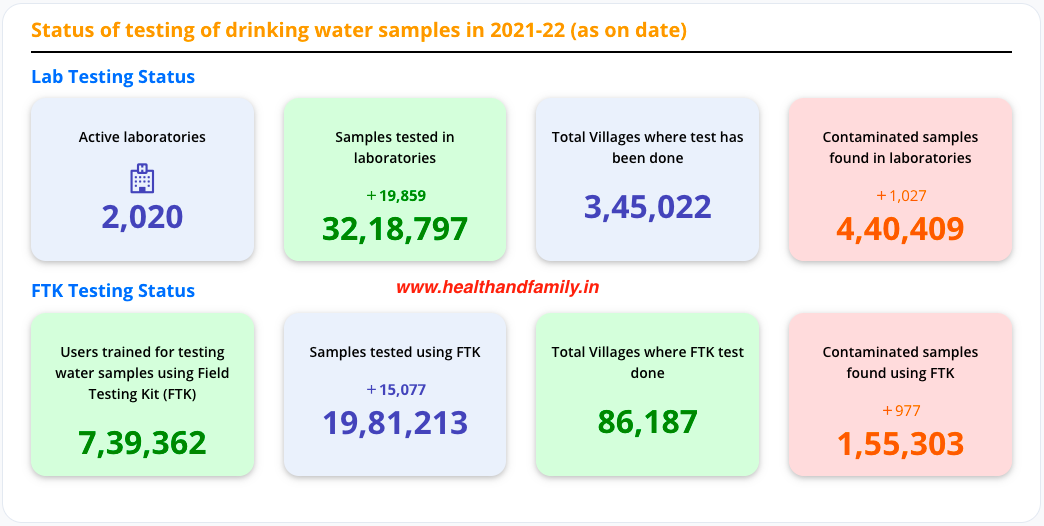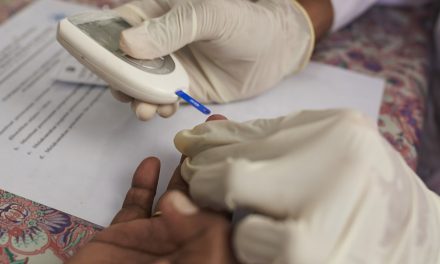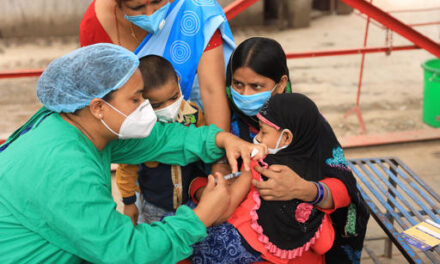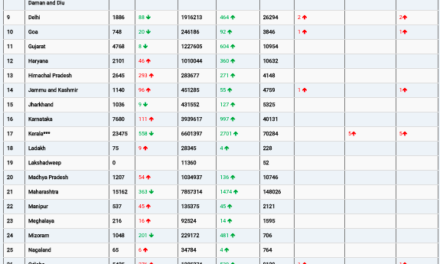Drinking water supply is a State subject. Water Supply/ Water & Sanitation/ Public Health Engineering Departments and/ or parastatal organization of respective State Government/ UT Administration, is responsible for making provision of water supply and quality of water supplied in their respective State/ UT.
To make provision of potable tap water supply in adequate quantity, of prescribed quality and on regular & long-term basis to every rural household by 2024, since August 2019, Government of India in partnership with States, is implementing Jal Jeevan Mission (JJM) – Har Ghar Jal. Under JJM, while planning water supply schemes to provide tap water supply to rural households, priority is given to quality–affected habitations.
As per Operational Guidelines for the implementation of Jal Jeevan Mission, BIS–10500 is to be followed by States/ UTs for ensuring potable drinking water to rural households.
States/ UTs have been advised to carry out testing of drinking water sources once in year for chemical and physical parameters and twice in a year for bacteriological parameters. To enable States/ UTs to test water samples for water quality, and for sample collection, reporting, monitoring and surveillance of drinking water sources, an online JJM – Water Quality Management Information System (WQMIS) portal has been developed. The State-wise details of the water quality test reported through WQMIS is available in the public domain on JJM Dashboard and can also be accessed at:
https://neer.icmr.org.in/website/main.php
This portal also provides automated alerts to concerned authorities in States/ UTs, if the water sample tested is contaminated, to initiate remedial actions. States/ UTs have also been advised to identify and train 5 persons preferably women in each village viz. ASHA workers, health workers, VWSC members, teachers, etc. to conduct water quality tests using FTKs/ bacteriological vials at village level and report the same on the portal.
To encourage water quality testing to ensure potable drinking water supply, States/ UTs have been advised to open water quality testing laboratories to general public at a nominal rate for testing of their water samples.
As informed by the Directorate General of Health Services, M/o Health and Family Welfare, the number of cases of water-borne diseases such as Acute Diarrheal Diseases, Cholera, Viral Hepatitis – A, Viral Hepatitis – E and Leptospirosis reported is Annexed.
This information was given by the Minister of State for Jal Shakti, Shri Prahlad Singh Patel in a written reply in Rajya Sabha today.











